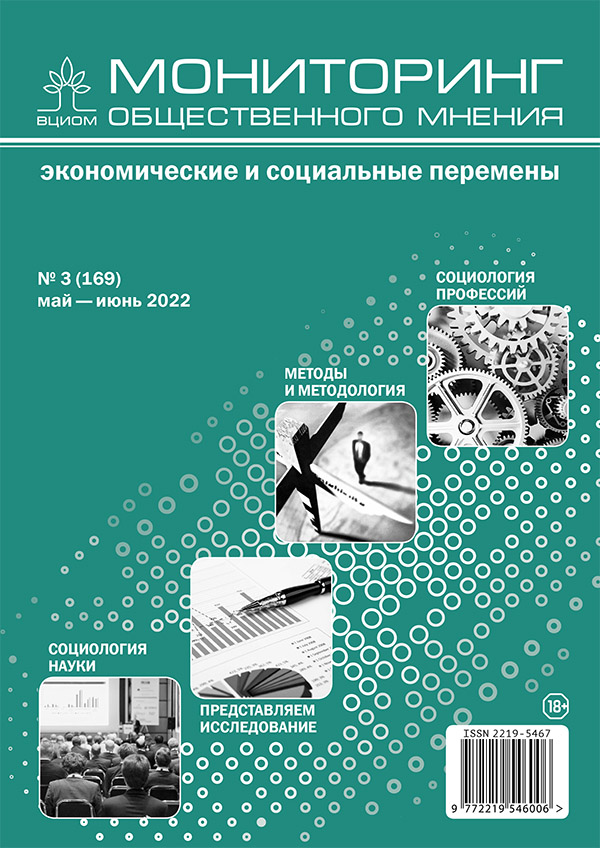Value Orientations in Russia: Comparing Evidence from Online and Face-to-Face Surveys
DOI:
https://doi.org/10.14515/monitoring.2022.3.2083Keywords:
online-survey, emancipative values, World Value Survey, choice values, equality values, Values in CrisisAbstract
Online surveys offer many advantages over traditional interviews, as they are low-cost, less time-consuming, and reduce interviewer effects. The latter feature is especially important since it makes online surveys an effective tool for gathering information about sensitive topics. This may be invaluable when fieldwork is conducted in contexts where one may expect strong pressure on respondents to provide socially desirable responses. However, online surveys have also several limitations. Online samples are typically non-random and non-representative, and therefore may provide biased estimates of various quantities of interest. In this paper we used data from two online surveys, the Value in Crisis and Online-2018, to assess the overall quality of web-based social scientific data collected in Russia. We use data from the 7th wave of the World Value Survey, collected using face-to-face interviews, and from the 2010 Russian Census as benchmarks. We found that both online samples are representative by gender and, to a lesser extent, age. Yet, they had smaller fractions of low-educated and rural-area respondents. Nevertheless, we managed to establish measurement invariance of two sensitive value constructs, choice and equality values, across different survey modes. Substantively, in most socio-demographic groups the mean values of both choice and equality values are greater in online surveys than in offline surveys.
Acknowledgments. The article was prepared in the framework of a research grant funded by the Ministry of Science and Higher Education of the Russian Federation (grant ID: 075-15-2022-325).
Downloads
Published
How to Cite
Issue
Section
License
Copyright (c) 2022 Monitoring of Public Opinion: Economic and Social Changes Journal (Public Opinion Monitoring) ISSN 2219-5467

This work is licensed under a Creative Commons Attribution-NonCommercial-ShareAlike 4.0 International License.






